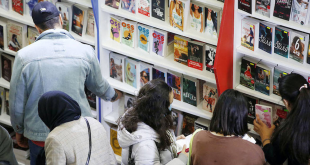
China’s willingness to support Africa in dealing with the twin challenges of conflict and COVID-19 pandemic as expressed at the recent United Nations Security Council (UNSC) meeting is a sign of great brotherhood, African political and international relations experts have noted.
This came after Wang Yi, State Councilor and Foreign Minister of China, which holds the Presidency of the Council for May, on Wednesday called on all capable countries to urgently provide COVID-19 vaccines to Africa that is facing a severe challenge in vaccine access.
United Nations Secretary-General Antonio Guterres on the occasion said of the 1.4 billion doses of COVID-19 vaccines administered to date globally, only 24 million have reached Africa.
As the world faces the possibility of an uneven recovery from COVID-19, Guterres warned that it is clear the crisis is feeding many drivers of conflict and instability in the region.
“The international community should give more help on anti-pandemic supplies, medicines, technology and funding, especially through ways including non-reimbursable assistance, preferential procurement, technology transfer, and cooperative production, so as to ensure the accessibility and affordability of vaccines in Africa,” Wang said.
In the face of the once-in-a-century pandemic, China and Africa are willing to jointly launch a partnership initiative to support Africa’s development, Wang said.
He called on the international community to beef up support for Africa in such areas as fighting the pandemic, post-pandemic reconstruction, trade and investment, debt relief, food security, poverty reduction and alleviation, coping with climate change, as well as industrialization.
UNSC MEETING COMES AT OPPORTUNE MOMENT
Cavince Adhere, a Kenyan international relations researcher with a focus on China-Africa relations, noted that the high-level meeting by the UNSC came at an opportune moment.
“Africa remains the most economically afflicted region by the global health crisis. The pandemic has wiped out millions of jobs, created social vulnerabilities, and pushed an estimated 114 million people back into absolute poverty,” Adhere told Xinhua.
Due to the pandemic, real GDP in Africa is projected to grow by 3.4 percent in 2021, after contracting by 2.1 percent in 2020, according to the African Economic Outlook 2021 report released by the African Development Bank Group.
“While the rest of the world is increasingly leveraging vaccination as a rational and sustainable way of the pandemic, African countries can hardly access vaccines,” Adhere observed.
Only 1.48 percent of the continent’s population has so far been vaccinated against COVID-19, according to the Africa Centers for Disease Control and Prevention.
Mulenga Lwansa, Quality Assurance Director at Medical for Quality Healthcare in Zambia, said it is an uphill battle to secure vaccines in Africa. “The rich countries are able to respond. For poor countries, we are at the mercy of those rich countries.”
“It’s very important that we have to have global vaccine equity. In fact, the South African President has called it Vaccine Apartheid because countries are hoarding the vaccine. It’s a shame of the developed world who are being very protective of supplying vaccines to Africa and the rest of the third world,” said Costantinos Bt. Costantinos, professor of public policy at the Addis Ababa University in Ethiopia.
SPIRIT OF TOGETHERNESS
Sherrif Ghali, a professor in politics and director of the Institute for Legislative Studies at the University of Abuja, Nigeria, told Xinhua that the good relations between China and Africa express the spirit of oneness and togetherness.
Ghali said Africa and China represent each other and support each other at the United Nations, noting that China is doing what a responsible global power should do.
Ghali observed that no country in the world can deal with global challenges like the COVID-19 pandemic on its own, and Africa in particular needs support from the international community. During the meeting, Wang Yi said China has been a staunch supporter of Africa in the COVID-19 fight.
Forty-six Chinese medical teams based in Africa stood up to the challenge instantly to support local response efforts; China has sent 15 ad hoc medical expert teams to Africa and swiftly set up a cooperation mechanism for Chinese hospitals to pair up with 43 African hospitals; China has been, and is, providing vaccines to over 30 African countries on the basis of their urgent need, said Wang.
China has fully implemented the G20 Debt Service Suspension Initiative, signed or reached agreement with 16 African countries on debt service suspension, and canceled the debts of 15 African countries in the form of interest-free government loans that were due to mature by the end of 2020 within the framework of the Forum on China-Africa Cooperation, said Wang.
“We expect the initiative to facilitate actual collaboration among international partners, to assist Africa in containing the pandemic, boost economic recovery, and deal with development and security challenges,” said Ghali.
Xinhua
 Africa -China Review Africa -China Cooperation and Transformation
Africa -China Review Africa -China Cooperation and Transformation
